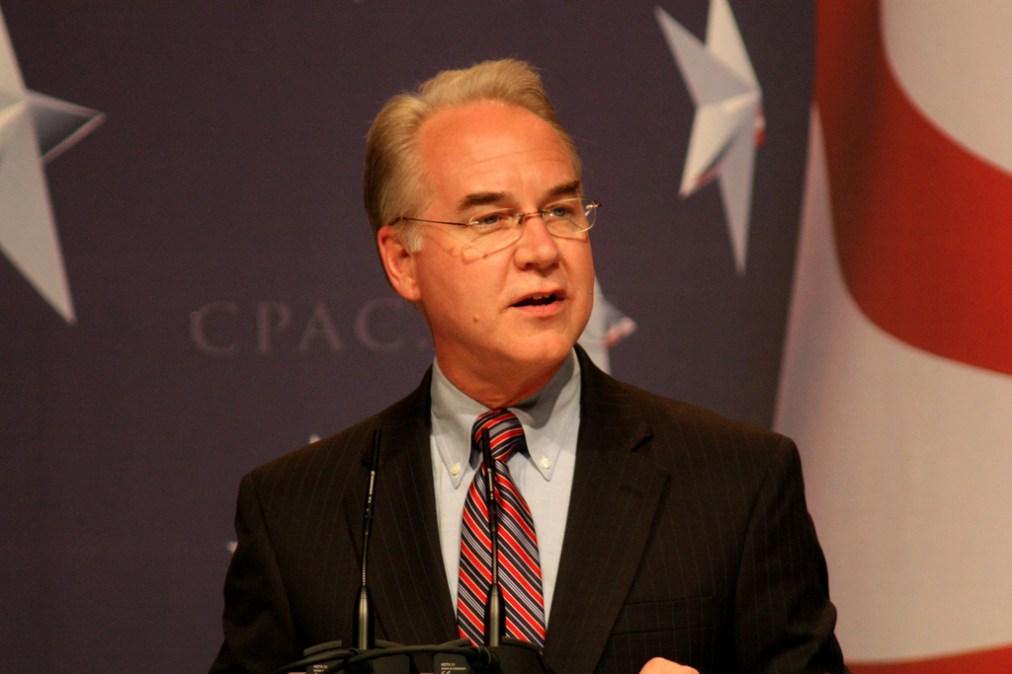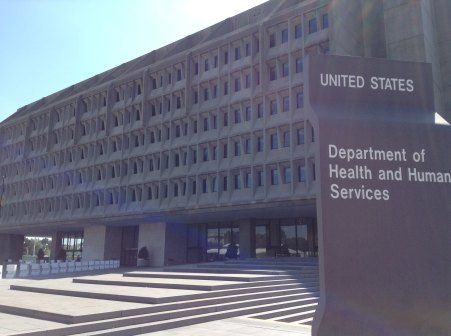HHS secretary equates health IT to ‘burden’ for doctors

Health and Human Services Secretary Tom Price advocated Thursday for reducing the burden placed upon physicians and health care providers by the health technology that is otherwise meant to improve care for patients.
Speaking at his first Health Datapalooza as the head of HHS, Price said the proliferation of health IT is something that “can have remarkably challenging and sometimes destructive consequences.”
Price — a physician himself — spent the majority time Thursday focusing on how the various data scientists, technologists and health care personnel gathered in the room could make “health IT work for clinicians, work for the folks providing care” and arguing that “technology should make the capture and the sharing of data easier for clinicians and not more challenging.”
“We simply have to do a better job of reducing the burden of health IT on physicians and all health care providers,” he said. “The promise of big data and health IT is so great, absolutely remarkable. But we must not, cannot continue to get this wrong with the sense that sometimes comes out of this town, and that is a one-size-fits-all, inflexible system for our nation’s physicians and patients simply will not work.”
Price said advances in health technology have forced providers to spend their time “tapping on screens and keyboards rather than helping patients — it oftentimes seems it’s taking their focus away from the reasons they went into taking care of patients or practicing medicine.”
He pointed to it as a reason more physicians are retiring earlier rather than “dying with their white coat on,” citing his own grandfather, who didn’t quit practicing medicine until he was 94.
“It’s incredibly important for us as a society to step back and say, ‘Why? Why is that happening?'” said Price, a Republican former U.S. House member from Georgia. “And let me suggest to you that the solution for that rests, a lot of it, in this room. Because the why of it is oftentimes the burden that physicians and other providers and clinicians feel out there.”
He continued: “I know that we have lot more than one physician to retirement because of the kinds of burdens that have been placed upon them — and that simply ought to be unacceptable to us.”
Price didn’t walk away without acknowledging the importance of open health data and health IT. The Trump administration is “fully committed to fulfilling the promise of health data and IT, and to supporting the ingenuity of the folks in this room,” calling the evolution of health IT and electronic medical records “incredibly and vitally important.”
But he did so with the caveat that it’s turning doctors into “data entry clerks.”
“Data is absolutely crucial, don’t misunderstand me,” Price said. “It is absolutely vital that we have data, that we have all the data that we can, and that we use it in an evidence-based manner so that we can provide better care and better quality of care to patients. But we need our physicians to be patient-facing, not computer-facing, which is what many of them feel that they are right now from an electronic medical records standpoint.
Before wrapping up, Price also addressed the looming issue of electronic health-record interoperability — something that seemed to him “simple” to solve when it was first introduced. As secretary of HHS, Price said, he plans to take a simple approach to drive greater interoperability.
“From my perspective, it seems that what we ought to be doing is deciding what the rules of the road are: We’re going to drive on the right side, we’re going to stop when the red light comes up, this is the language we’re going to use … as opposed to stipulating every single dot and tittle all the way down the line,” he said. “What we’re going to try and do is encourage from a regulatory standpoint an interoperability at the 60,000-foot level, at the 30,000-foot level, so that we incentivize that and then let the ingenuity of you and the remarkable activity that so many folks know about in terms of letting that data flow and letting the innovation down below percolate.”






